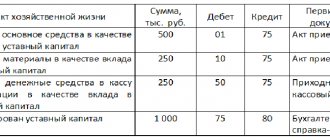What does wages depend on?
The parties independently agree on financial issues.
Responsibilities are paid differentially. Seniority, experience, class rank and other conditions matter. The manager determines the terms of payment for the employee. The HR specialist records them in local acts.
It is necessary to take into account: the remuneration specified in the contract cannot be less than the minimum amount in the employment contract. In other words, a person cannot earn less than 5,965 rubles. You also need to indicate what the premiums are paid for. Clarity is brought through local acts, where a system of incentives is established.
Document form
Any TD must be concluded in writing and certified by the signatures of the head of the employing organization and the employee himself. The law does not provide for the oral conclusion of such a contract. The standard form of TD is legally provided only for micro-enterprises (approved by Decree of the Government of the Russian Federation of August 27, 2021 No. 858), however, if desired, all other employers can use it. This template is convenient because it already provides for all the current norms of the Labor Code of the Russian Federation and other legislative acts, so this is a successful example of an employment contract. Piecework payment (2017) in its section on salaries must be prescribed by the organization itself. In a TD that an organization has developed independently, this section may look something like this:
What conditions must be specified in the contract?
The wage payment algorithm in the contract should be clarified. There should be no doubt about how payment is handled after reading the agreement.
Financial issues in the contract
| Terms of payment | Peculiarities |
| Bid | This item must be enabled. If an enterprise pays incentive payments to employees, bonuses, remunerations, then here you need to make a reference to internal regulations. Where internal provisions have not been adopted, a detailed statement of the payment of compensation should be made in the contract. |
| Contributions | The rate actually turns out to be slightly less. After all, it is written without taking into account personal income tax. Apart from pension payments, no other deductions are made from salary. |
| Insurance | Insurance conditions must be clarified. It is not necessary to list all payments in full. It is enough to indicate that the organization guarantees a social package to employees. If an internal document has been adopted, it is advisable to make a link to it. |
| Regional odds | The agreement determines the amount of allowances. The employee needs to be careful here. For example, a manager promises a salary of thirty thousand, to which a coefficient must be added. The agreement states a salary of 28,000 and a coefficient of 2,000 rubles. From a legal point of view, there are no violations here. |
What legal norms are the issue of wages based on?
Remuneration and the need to record information about its amount, as one of the requirements for an employment contract that claims to be legitimate, is one of the key conditions of the signed employment contract. It is for this reason that the regulation of the mechanism for reflecting the issue of remuneration occurs not only at the level of the Labor Code of the Russian Federation, but also at the level of other legal acts, including those adopted to expand the possibilities of legal application of the provisions of labor legislation.
Questions of how, down to the wording, working conditions should be reflected in the signed employment contract are regulated by Chapter 21 of the Labor Code of the Russian Federation. This section of the normative act is devoted to all possible nuances that the legislator tried to take into account at the stage of formation and periodic amendment of the Labor Code of the Russian Federation. So, in particular, Article 135 of this code states that the level of wages for an employee is established on the basis of the provisions of the employment contract.
At the same time, regarding exactly how this provision should be formulated within the framework of the employment contract itself, Letter of Rostrud No. 5275-61 dated December 24, 2007 contains a direct indication: the amount of wages in the employment contract must be fixed in specific digital terms without using references to the staffing table or other legal document of the organization. If the salary amount is indicated without fixing a specific amount, then this wording is not legal.
In addition, this letter also contains a recommendation that the amount of wages (or its salary part, if we are talking about the wage option, when there is a fixed part of the salary and its variable part) must be indicated not only in the numerical version, but also give a breakdown of this amount in brackets. This will avoid incorrect discrepancies regarding the amount of the salary, and will also reduce the possibility of its unlawful adjustment in already signed copies of the contract.
Procedure for changing the amount of remuneration
If the wages in the employment contract change, this must be recorded in writing. For this purpose, the parties sign an additional agreement, which adjusts the terms of remuneration in the employment contract.
Important! The boss cannot at will reduce the salaries of employees. The procedure must be followed, otherwise the law will be broken.
Employees must be notified in advance if the remuneration in the employment contract changes. The notice is sent two months before the salary reduction. If you are not satisfied with the new salary in the contract, then no signature is placed in the employment contract. Instead, the employment relationship is terminated.
Features and nuances
Salary for holidays
In the TD, it is important to provide for the specifics of payments for holidays in accordance with the provisions of Article 112 of the Labor Code of the Russian Federation. Typically, for such dates, employees who do not work on a salary are entitled to additional remuneration. The procedure and amount of additional payment are usually prescribed directly in the employment contract, but a separate local act can be approved, which can be referred to in the contract. In this case, the employee must be introduced to it against his signature at the time of applying for a job. Moreover, such additional remuneration is part of the remuneration.
Shift work
If an organization provides for piece workers a shift work schedule, including night shifts, then the employer does not have an obligation to pay additional remuneration for holidays. In this case, it is necessary to take into account the increased rate for work at night and on weekends, including holidays. All this must be reflected in the TD.
Piece-bonus payment
Sometimes an organization uses a piecework-bonus system, in which case this must also be reflected in the TD. In this case, it is necessary to indicate that the employee will receive a bonus for production results if the bonus conditions are met. Such a bonus can be set either as a fixed sum of money or as a percentage of the cost of the work performed. In this case, it is necessary to make reference to the local acts of the organization containing piece rates and bonus conditions. The employee must be familiarized with them and signed.
Simple
It is advisable to indicate in the employment contract what guarantees are retained by the employee in the event of forced downtime. The management of the organization must remember that the monthly salary for an employee who regularly went to work and followed all the orders of management cannot be lower than the established minimum wage, provided that he works full time. Therefore, it is imperative to provide for a guaranteed minimum in the contract.
Common Mistakes
Despite the fact that the Labor Code of the Russian Federation regulates how working conditions should be specified in the contract, mistakes are made.
5 things you should not do when filling out a contract:
- Use vague language about the amount of remuneration. For example, a specialist’s work is paid in accordance with local regulations approved by the enterprise. It is better to avoid such inaccuracies, because inspectors can issue fines.
- Prescribe a reward system without specifying the basis of payment. An employer will make a big mistake if it indicates an employee's right to bonuses, but does not indicate what they are paid for. Indeed, in this case, the manager will be obliged to make incentive payments on an equal basis with the basic salary. Therefore, you need to carefully formulate provisions on how duties will be paid.
- Omit the provision in the form that the specialist receives an advance. There must be a written condition establishing the frequency of payments. Remuneration must be transferred at least twice a month. Other conditions contradict Art. 136 Labor Code of the Russian Federation. The rights of a specialist are violated if the time interval between wages and advance payment is more than fifteen days.
- Decide how to prescribe the form of payment of remuneration at your discretion. Let's show it with an example. Remservice LLC established that employees receive part of their earnings in the form of their own products, and the rest in money. However, it is not stated how much percent of the income specialists receive in kind. This condition is incorrect. The law stipulates that prepayment cannot be less than twenty percent of income.
If the contract form establishes wages in foreign currency, then the document is void. On the territory of the Russian Federation, the unit of payment is the ruble.
- It is illegal to set fines. Example. The director of the company does not like the fact that his employees smoke during the day. So he established fines for smoking. Such punishment is illegal. Art. 189 of the Labor Code lists the types of sanctions, and fines are not among them. According to the law, there are no material sanctions. You can be fined for property damage or other material damage. But the boss may well take disciplinary measures against the violator.
So, it is advisable to carefully choose the wording in order to draw up documents in accordance with the letter of the law.
How to properly draw up an employment contract with piecework wages
Each employment contract (piece-rate wages) requires the employer to draw up certain nuances when drawing up. In particular, it must provide for how non-working holidays will be paid for, as well as set prices. Since the norms of Article 57 of the Labor Code of the Russian Federation directly provide for the employer’s obligation to indicate in the contract with employees all conditions of remuneration, namely:
- the size of the employee's tariff rate (official salary),
- surcharges,
- allowances and incentive payments,
- prices per unit of products produced or work (services) performed.
However, it is allowed for the document to contain references to internal local acts that set prices at the enterprise for a manufactured unit of product (another operation or work, service) and production standards. In this case, in the text of the TD you can write the following phrase:
A piecework wage system is established for the employee. Wages are calculated based on piece rates established in the wage regulations and the amount of work performed by the employee.
In this case, the employee with whom the TD is concluded must be familiarized with the order or other local act against signature at the time of employment. At the same time, it is important to remember that in accordance with the requirements of Article 136 of the Labor Code of the Russian Federation, wages to workers with piecework wages must be paid in the general manner, namely at least twice a month, with an interval of no more than 15 days between payments.
Summary
- The amount of remuneration and the terms of its transfer are essential terms of the employment contract.
- Not only the salary is indicated, but also additional payments, as well as the grounds for their transfer.
- It is wrong to make references to local acts. You must indicate the exact bet size.
- It is impossible to arbitrarily change the terms of remuneration in an employment contract. If the salary increases or decreases, an additional agreement must be signed.
- The specialist is notified of changes in working conditions two months in advance.
Normative base
There are two important and immutable rules enshrined in the Labor Code of the Russian Federation:
- It is necessary to conclude an employment contract with each employee, which will spell out all the conditions of his work and rest in the organization.
- Each employer has the right (without going beyond the current Labor Code of the Russian Federation) to independently establish such working conditions, including the type of payment.
Based on this, it follows that any employer can assign to its employee one of the types of remuneration permitted by the Labor Code of the Russian Federation, in particular:
- time-based (the employee will receive a salary for a month of work or a fixed rate per unit of time - a day or an hour);
- piecework (the amount of earnings will depend on prices and the number of products produced per month);
- commission (the employee is set a percentage (commission) for goods sold (work, services)).
These types of earnings can be used either separately from each other or of a mixed nature. All this depends on the specific working conditions in the organization, but must be specified in the contract when hiring an employee. The type of remuneration is an essential condition of the TD, therefore, in the event of any changes in this matter, the parties will have to enter into an additional agreement. (Article 135 of the Labor Code of the Russian Federation).







